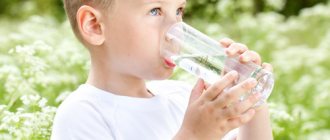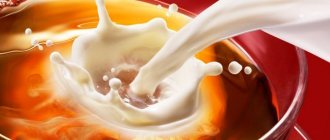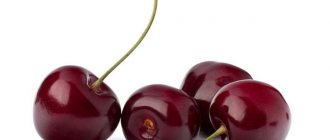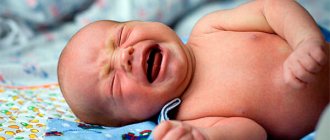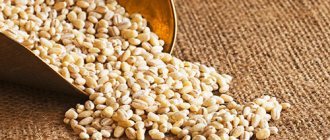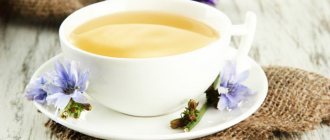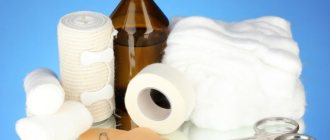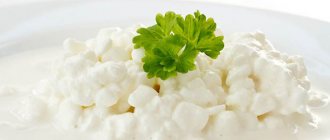Breastfeeding is an important process in the life of a woman and baby. Breast milk fills the body with essential vitamins and minerals and promotes normal growth and development of the baby. Interestingly, the composition of breast milk changes as the baby ages to best meet the baby's needs.
But in any case, breast milk consists of 85-90% water. Therefore, for successful lactation, a nursing mother must maintain a drinking regime and consume a sufficient amount of liquid. It is important to consider that these should be safe and healthy drinks. But should you drink a lot of water to maintain or improve lactation?
Do I need to drink a lot of fluids for lactation?
Water does not directly affect the quantity and volume, but it can slightly reduce the fat content of breast milk if it is too thick and difficult to digest in the baby's body. However, a woman must necessarily replenish the lack of fluid that is consumed by the body. The liquid stimulates milk production and normalizes lactation. Therefore, a nursing mother needs to drink plenty, but not excessively.
A larger volume of fluid consumption should be drinking (boiled, filtered or bottled) water. But she shouldn't be the only one. A nursing mother can drink natural juices, compotes, tea. Next, we will look at which drinks are allowed and which are prohibited during lactation. Find out how much fluid you need to drink while breastfeeding.
Which water to choose
What foods cause colic in breastfed babies?
Having decided when to start feeding the baby, the mother will ask what kind of water. The fact that the liquid should not come from a tap is clear.
Raw water can be given to a baby if it is spring (artesian). In the time of Benjamin Spock, only boiled water was recommended. Evgeny Komarovsky is categorically against such drinking. Although boiling kills pathogenic microbes, in the process salts that are important for the body precipitate.
What to drink for a baby:
- At any pharmacy you can buy bottled water designed specifically for babies.
Baby water from the pharmacy
- Your nearest store will sell non-carbonated mineral water with a neutral taste. It can also be given to infants without boiling, if the container is kept closed at all times.
- When you only have tap liquid on hand, it is first filtered or settled, then boiled. Raisins will help replenish the mineral composition - 1 tbsp. per glass of hot water.
Some children enjoy drinking sweetened water. But the amount of sugar should not exceed 2% of the total volume.
Fluid intake during breastfeeding
The minimum fluid intake for humans is 800 ml per day. To ensure normal material metabolism and maintain the body in a comfortable working condition, the consumed volume should be 1 – 2 liters. However, for a nursing mother, the drinking volume increases, as the liquid is spent on milk production.
On average, 1-1.5 liters of breast milk are produced per day. To make up for these costs, you will need to increase your standard fluid intake. Thus, a nursing mother needs to drink 2.5-3 liters of liquid, including broths and liquid dishes. Moreover, half of the norm should come from water consumption.
Water while breastfeeding
Every woman, having given birth to a child, thinks about how much and what she is allowed to drink. There is an opinion that you should immediately drink as much fluid as possible. Water during breastfeeding: when and how much to drink.
- Amount of water required by a woman when breastfeeding
- The influence of drinking regime on breast milk
- Water consumption at the beginning of lactation
The drinking routine of a nursing mother in summer raises a special question. When it's hot, a person starts to sweat a lot, plus a lot of water from orgasm is used to create milk.
Milk is 88% water, so a nursing mother needs to drink enough of it.
Amount of water required by a woman when breastfeeding
• In order for the female body to function smoothly and not have metabolic disorders, you need to drink 2 liters of water per day.
You should also take into account the time of year and how much the woman sweats.
• A nursing mother needs about 2.5-3 liters per day. During breastfeeding, approximately one and a half liters of milk are produced per day.
To create it, the body needs to receive water.
Accordingly, approximately one more liter is added to the standard required amount of liquid (2 liters per day).
The smallest volume of liquid entering the body should be eight hundred milliliters.
Consuming less than this amount may cause dehydration.
Clean water should be the main source of drinking.
The influence of drinking regime on breast milk
Drinking does not directly affect whether there is a lot of breast milk or a little.
It can only regulate the percentage of its fat content so that it is easier for the child to digest it.
Useful tips for mothers: NUTRITION FOR A NURSING MOTHER
But every mother is obliged to follow a drinking regime. The liquid helps produce milk and normalizes lactation.
In this regard, a nursing woman needs to drink enough, but not excessively.
The need to drink is regulated by the sensation of thirst. This is clearly felt in the first week or two after the baby is born.
This is influenced by the hormone oxytocin. Together with lactation, it triggers the thirst mechanism.
In the first half of the month after giving birth, an increased desire to drink is normal.
The body asks to replenish fluid levels so that dehydration does not set in.
Doctors advise a nursing mother to always have a glass of water near her so that she can always drink.
Water consumption at the beginning of lactation
There are different points of view about the drinking regime at the beginning of breastfeeding.
Our grandmothers believe that in the first postpartum period, in order to avoid a sudden milk flow and breast pain, you need to reduce your drinking intake.
But this risks dehydration, and the milk may become too thick, making it difficult for you to release it from the breast.
In addition, the woman experiences stress due to the constant desire to drink and oxytocin ceases to be produced - this has a negative effect on lactation.
You should drink as much as your body needs. But there should be a norm. Don't force it into yourself.
This is not beneficial, since excess fluid activates the functioning of the kidneys, not the mammary glands.
- about the author
- Recent publications
Svetlana Ovechkina
author of the publication (site editor)
TEACHER Higher pedagogical education. Director of the kindergarten.
Svetlana Ovechkina recently published (see all)
- 7 month old baby’s daily routine – 03/28/2019
- Chocolate during breastfeeding - 03/25/2019
- How to resume breastfeeding - 03/21/2019
What you can and cannot drink while breastfeeding
In the first months, you can drink weak black and green tea, dried fruit compotes. Natural pear or apple juices are allowed in the first weeks after the baby is born, but such a drink must be diluted with water. After two to three months, you can include fruit drinks, natural carrot juices, and chicory in your diet.
You can add a little sugar and lemon to the tea if your baby is not allergic to citrus fruits. But it is better to avoid adding honey, jam and condensed milk until 5-6 months. It is not recommended to drink cocoa and kvass until six months.
Be careful with herbal tea, as some types of herbs can negatively affect breast milk production. For example, lingonberry, jasmine, sage and mint suppress lactation. To protect yourself and your baby, you can buy special herbal tea to maintain breast milk production. Which tea is suitable for nursing, see here.
While breastfeeding, you should not drink carbonated and alcoholic drinks, citrus juices and exotic fruits. Coffee is acceptable in small quantities after 4-5 months of lactation.
Milk and dairy products
Milk is not recommended for nursing mothers, since cow protein is a powerful allergen, which is also difficult to digest. Therefore, it is not recommended to eat even milk porridges in the first 5-7 months of lactation, and it is better not to give porridge with milk as complementary foods to infants before 10-12 months. But a nursing mother can add a small amount of milk to her tea, but not more than 200 ml per day.
Fermented milk products and drinks can be consumed without fear. When making such food, milk protein is broken down and loses its allergenic potential. Already in the second week of lactation, drinking natural yogurt without additives is indicated in a daily dosage of 250-500 ml. In the second or third month, you can drink yogurt or fermented baked milk, the daily intake of which is 200-400 ml.
Kefir is included in a nursing mother’s diet no earlier than six months after the start of lactation. The optimal age for a baby for this drink is 8-9 months. The product contains up to 0.6% ethyl alcohol, so drinking the drink can adversely affect the digestion and well-being of an infant. To avoid a negative reaction, do not introduce the product earlier than prescribed, drink 300-500 ml of kefir up to three times a week and choose a drink with less fat content.
Drinks in the diet of a nursing mother
- Introduce each new drink into your diet carefully. At the first test, take a few sips and observe the child’s reaction for 1.5-2 days;
- If you experience allergies or digestive problems, exclude the product from your diet. A new attempt can be made in a month;
- The daily fluid intake is 2.5-3 liters, half of which is water consumption;
- It is recommended to drink the drinks warm. A product that is too hot will burn the intestines, and a cold product will lose some of its beneficial properties;
- Add multi-ingredient drinks (from several herbs, tea with lemon, honey, milk, etc.) only after each ingredient has been added;
- It is advisable to prepare juices, compotes, fruit drinks and fermented milk products at home. This way you will be sure of the composition and expiration date of the drink;
- If you buy store-bought drinks, carefully check the composition and expiration date. Especially if these are fermented milk products that can only be stored for a few hours or days;
- Take natural drinks without preservatives, additives, GMOs, carcinogens and other chemicals;
- Alcohol and carbonated drinks are not recommended when breastfeeding. If a nursing mother drank a glass of wine or champagne, 4-5 hours should pass before breastfeeding.
Foods and drinks do not directly affect lactation. However, they can stimulate production or, conversely, stop it. If you have problems with lactation, you can increase the amount of water consumed and eat more warm broths. In addition, there are a number of drinks to enhance milk production. Read more about this at the link https://vskormi.ru/breast-feeding/produkti-povishauchie-laktaciu/.
Subscribe to our VKontakte group
Should I give water in hot weather?
The drier and hotter the air surrounding a child, the more fluid his body loses. A baby over a year old is able to ask for water, but newborns cannot yet complain about the heat on their own. If the baby is not helped in a timely manner, he will suffer from heatstroke.
Constipation in a baby while breastfeeding - what to do
According to health care, babies have enough water that is present in mother's milk. But when the summer turns out to be hot, fluid from the breast will not be able to fully compensate for the heat losses of the child’s body.
Even if your baby doesn't ask for water or smack his lips, it's a good idea to offer him a refreshing drink between feedings. The little one will decide for himself whether he wants to drink or not.
It is the mother's responsibility to closely monitor the condition of the newborn so as not to miss signs of discomfort caused by the heat.
Symptoms indicating thirst:
- The baby is too restless or, conversely, lethargic;
- The child cries, but no tears flow;
- There is no salivation, lips are dry;
- The skin becomes pale and dry;
- The child does not urinate for 6-8 hours.
Important! If a newborn is given a bottle of water and starts drinking greedily, this is evidence of dehydration.
The baby is thirsty
When should you offer water to your baby? When the air temperature is below 24° C, the child may refuse water himself. But enough for the mercury in the thermometer to creep up, and the baby becomes uncomfortable.
As soon as the degrees reach +26, mother prepares a bottle of water at the rate of 30 ml per kilogram of body weight (this is the daily norm).
The logical question that arises is what temperature the liquid should be. If breast milk is supplied to the baby heated to 37°, then cooler water can be given - 26-30 degrees for the first 3 months and 20° in the subsequent months.
True, warm water does not provide a refreshing effect, but it restores hydrobalance well. Cooler liquids should not be given to newborns - there is a risk of getting a sore throat.
